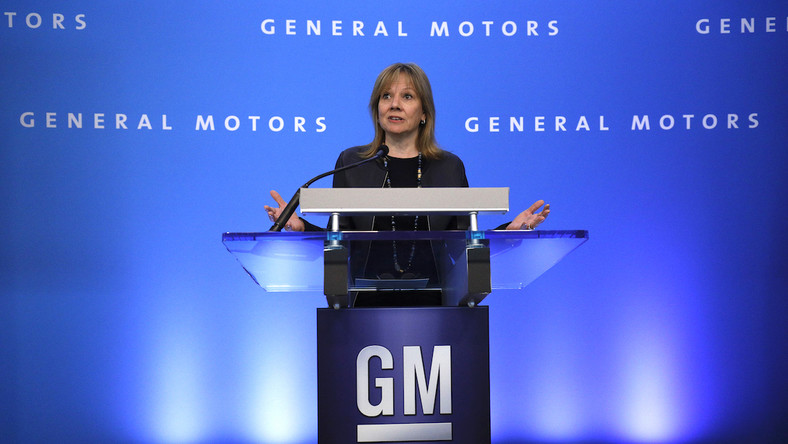Early Monday morning, 49,000 General Motors workers, members of the United Auto Workers union (UAW), walked off the job to protest low wages and a cruel two-tier wage system that has left thousands of “temporary” workers living at or close to the minimum wage. The walkout, which is estimated to cost GM as much as $100 million a day, is the biggest auto-workers’ strike in decades.
In response to the strike, GM Chief-Executive Mary Batta, who is slated to earn an astounding $22 million this year, immediately and without warning stopped funding for the employer-provided healthcare for all striking GM workers on Tuesday morning. This decision was made despite the fact that the company had promised just a day before that they would cover the cost of employee health insurance until the end of the month. The unexpected move has left UAW members and their families without access to vital, sometimes life-sustaining health services.
Just hours after the announcement, stories began pouring in of UAW members being denied essential care. In Parma Ohio, for instance, the child of one GM employee had to cancel a vital cancer treatment because of the loss of benefits. In Tennessee, UAW member, Dennis Urbania, says he was forced to postpone life-saving heart-transplant surgery because he can no longer provide proof of insurance. Meanwhile thousands of GM workers and their family members face potentially massive medical costs if they are hurt or injured while uncovered. Though UAW members on strike are eligible for emergency insurance under the federal COBRA program, transitioning to the new insurance is not easy, and almost impossible to do while also walking a picket line day in and day out. And every day the strike drags on these risks increase.
And this is precisely why GM decided to cut off their employees health insurance. While it’s true that corporations like GM care only about the bottom line; in this case, it’s not really about the money—it’s about retaliation and intimidation. GM believes that it can use this tactic to weaken the workers’ strike fund and to scare their workers sufficiently that they will be less willing to stay on strike for an extended period of time and more likely to return to work sooner and with fewer gains. And GM is not alone in using health insurance as a weapon to keep workers in line. Not only do other employers regularly stop funding health insurance to forestall or undermine strike efforts, but they also often use the threat of increased health care costs or reductions in health benefits as a bargaining chip in contract negotiations. This tactic has made it that much more difficult for unions to win wage gains for employees, since they are forced to spend enormous efforts pushing back against employer demands to pass the increasing cost of health care onto their workers.
Despite the obvious negative effects of employer-provided insurance, many centrist Democrats and even some union leaders have used unions as an excuse to oppose any robust form of national health care, claiming that it would hurt unions. Joe Biden for instance, has argued that union members should not be “forced” to give up their hard-won benefits. “You’ve worked like hell, you gave up wages for it,” Biden said, claiming that most union members were happy with their healthcare and wanted to keep it. This sentiment has been echoed by business union leaders such as AFL-CIO President Richard Trumka, who has been cool to the idea of plans like Medicare for All precisely because he says it will take away employer-provided health benefits. Meanwhile, SEIU leaders have backed Kamala Harris’s healthcare plan, which would leave private insurers in place and maintain employer-provided health care for at least a decade if not indefinitely. For union bureaucrats like Trumka, who tend to spend more time with politicians than rank-and-file workers, benefits such as high-quality health insurance are just another way to maintain the relative advantage of union membership and thus secure their continued existence.
Such reasoning, however, is incredibly myopic, and issues from a position of weakness. If unions wish to rebuild their power, they cannot ignore the needs and demands of the broader working class who are their natural allies, nor can they continue to allow employers the power to bargain over such a basic human necessity as health care. A system of free, universal public health care would be good for all working people and would allow unions to focus more directly on taking control of their working conditions as well as taking back from capital a greater share of the value their members create.











